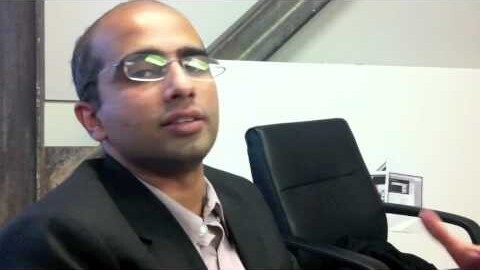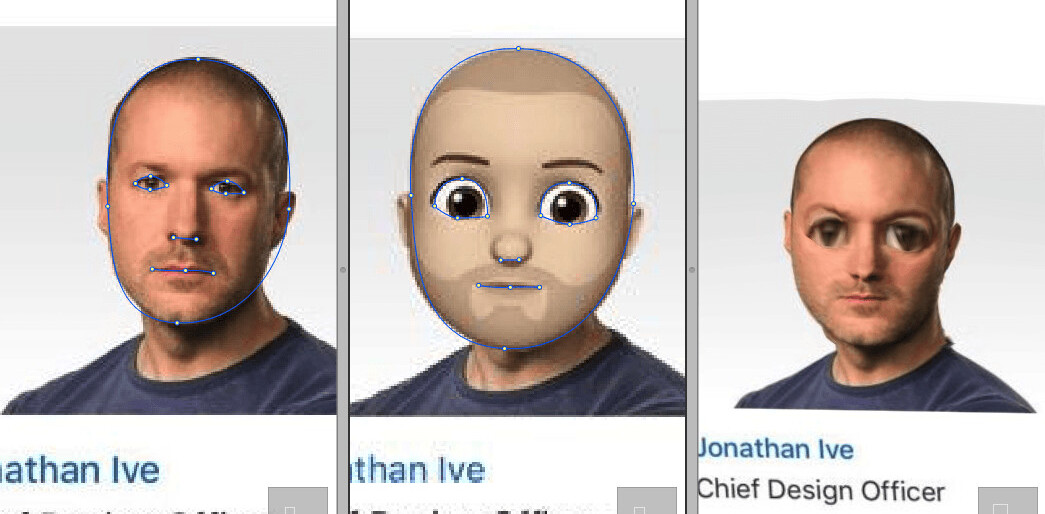
Before you read this, take a couple of minutes to assess the things that you do or the products that you use that require you to use the Internet to either function or even exist. If you, like me, suddenly realise how much you rely on the Internet, would you be able to be as productive or get tasks finished if you suddenly didn’t have all that connectivity at your fingertips?
Writing for The Next Web, I spend at least nine hours a day browsing the Internet; whether its for research or for chatting with my co-workers, I am never far away from a Google search or a website which could possibly help me publish the next big breaking story. Due to the nature of my job, my usage is extreme, I write about the Internet so I guess it’s accepted that I would spend that much time using it.
But what happens when I finish for the day? When the lid of my MacBook Pro closes, I instantly look to interact with my children in the hours before their bedtime, where time is spent finding ways to ensure they are learning whilst having fun. Playing with toys, play-fighting and reading books all manage to keep my little ones entertained but nothing can hold my children’s attention like my MacBook Pro or my iPhone. A quick YouTube search for a children’s show or the download of an app that plays animal sounds and my eldest would take himself off to interact with whatever was playing or launching at that time.
The kids go to bed and the wife and I turn on the television to catch up with the programme we missed the night before. Hitting the “TV on Demand” option on my television menu, my TV connects to BBC iPlayer and streams the content back to me, whilst my iPhone beeps to the sound of an incoming email.
Despite stepping away from my computer earlier, I’ve used the Internet to download applications for my son, used it to stream the television programme I missed last night and I’ve just received an email that my Amazon order is on its way. Thinking about it, I’ve used it nearly every hour of my waking day.
It’s the same for millions of people around the world – but is this a good or bad thing?
Are We Addicted?
With access at work, on our smartphones, televisions and laptops, the Internet has laid the foundations for things that we take for granted every single day.
The problem with having connectivity wherever you are is that you often remain contactable, even if you don’t want to be. Phone calls and text messages have been replaced with Facebook and Twitter messages, we can even Skype from our smartphones and contact our friends and family for free, no matter where they are in the world.
The benefits are huge, but the disadvantages are numerous also.
How often have you been in a restaurant and checked your mobile phone for new tweets, Facebook Wall posts or emails? You know you have seen the couple at the table by the window sitting there staring at their smartphones rather than speak to each other.
There might be deeper issues as to why there’s a lack of conversation, but with the mobile Internet keeping us a swipe or screen press away from all of our favourite social networks, messaging apps and photo sharing services, you could say we are being distracted by the virtual services that the Internet can make available to us.
Would You Be Smarter Without It?
The New York Times bestselling author, consultant, and speaker Julien Smith believes our brains are not wired to be made happy by the Internet:
Our emotions, like fear and joy, are based in a primal understanding of the world. This is something we can’t escape.
Saying the web is important to your life is like saying that television is important. It might be social, sure, but it’s still media. It can help connect but it also divides in a very fundamental way.
Touching a screen isn’t the same as touching a person.
The best stuff happens outside the web. Outside is new and frightening, not comfortable. Encountering pain helps transform your vision of yourself and forces you to grow.
And there is very little that is new and frightening on the web. The biggest realizations happen when you are in free-fall, not when you have a safety net.
It’s an interesting point but a little presumptuous that Internet users aren’t using the Internet to be more social or researching something that might be new and frightening to them.
However, with audio, images and video readily available and almost never destroyed, many users have become desensitised by what they see and read online.
Adult websites have boomed and now cater for a huge array of different “tastes”, there has also been an eruption of “extreme” websites that post images and videos of violence, killing and torture. You could argue that it helps people understand what is happening all over the world, but without a discernible filter in place, people can be numb to such acts when witnessed in real life and no longer shocked by something because they “saw it on the Internet”.
The emergence of Wikipedia shows us the power of group knowledge, people working together to collate information and make it available to a wider audience. But with its rise, came a reliance on information that had no fact checking and could be easily edited – schools began outlawing its use and pub quizzes were never the same after drinkers started referring to their mobile phones to research each one of the answers.
The Internet isn’t making us dumb, it’s making us lazy. If someone is inclined, they can learn to become a make-up artist based on videos posted to YouTube by a professional make-up artist or learn to play the guitar by using the website of a 12-year old musician – but information has become so available, we no longer need to commit it to memory.
Why Would You Want To Quit?
It’s true you can have too much of a good thing, but this is the same with nearly everything you interact with.
The Internet helps us stay on top of our finances, allows us to download music so we can listen to tracks on-the-go and it can assist in the tracking down of long-lost relatives. Blogs have helped housewives, the disabled and unemployed start bright new careers and social networks have allowed their users to connect with one another and become friends from opposite sides of the world.
And that’s a tiny snapshot of what is truly available thanks to the Internet.
Conclusion
“Quitting” the Internet might a little drastic, perhaps it is a case of learning to use it to your advantage. With so much information available, it can become difficult to disconnect from your work emails, log off that popular forum and go outside and do something far away from a mobile phone tower that provides your 3G signal.
The Internet has visualised every aspect on our everyday lives. For many, gone are the days of visiting travel agents, or queuing in the bank to transfer money; some gamers are even living in virtual worlds such as Second Life, a game that mimics the “real world”.
For me, it’s a balance. I still find myself checking emails and looking for stories when I am not meant to be working, I can see why people feel “burnt out” when they give themselves so much to do in a day. But without the Internet, I wouldn’t have met my wife, I wouldn’t know half the random facts I like to dazzle people with and I also wouldn’t have the chance to write the article for The Next Web I am writing today.
It’s good to sit back and take stock of what the Internet allows me to do. I know I couldn’t “quit” it, could you?
Get the TNW newsletter
Get the most important tech news in your inbox each week.




